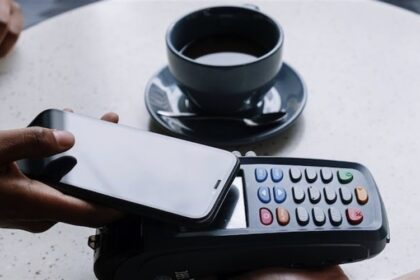In today’s digital age, credit card fraud is becoming more and more common. It can happen to anyone—no matter how careful you are with your personal information. And when it does happen, the impact can be far-reaching. Not only can credit card fraud lead to financial losses, but it can also damage your credit score and cause headaches that take time to resolve. The reality is, many people don’t realize the long-term consequences of credit card fraud until they start seeing negative marks on their credit report.
While some may immediately think about seeking solutions like the National Debt Relief calculator in Indiana to address their financial troubles, it’s just as important to take steps to protect yourself against fraud before it happens. Prevention is key, but knowing how to act when fraud occurs is equally important. Let’s take a closer look at how credit card fraud can affect your credit score and what you can do to safeguard yourself.
How Credit Card Fraud Affects Your Credit Score
When fraud happens, the consequences are not just about losing money. Your credit score can take a hit as well. Here’s how credit card fraud can damage your credit report:
- Unrecognized Charges and Disputes
If a fraudster uses your credit card information to make unauthorized purchases, those charges can show up on your statement. If you don’t catch these unauthorized charges in time, they might affect your payment history. Your payment history makes up about 35% of your credit score, and if these fraudulent charges are not disputed quickly, they could be reported as late payments or missed payments, which can negatively impact your score.
- Increased Credit Utilization
Another way credit card fraud can hurt your credit score is by increasing your credit utilization rate. This rate represents the amount of credit you’re using relative to your available credit limit. The higher the ratio, the more it can negatively affect your credit score. If a fraudster racks up charges on your card, your credit utilization rate goes up, which in turn can lower your score.
- Closing Accounts or Cancelling Cards
In some cases, when you report fraud, your card issuer may cancel your card and issue you a new one. This can lower the average age of your accounts, which makes up 15% of your credit score. The older your credit accounts, the better it is for your credit score. If you have to open a new account to replace the one used in fraud, it could impact your score by lowering your average account age.
- Debt Collections and Legal Issues
While this is less common, in certain situations, if the fraudulent activity isn’t handled properly, it could lead to debt collectors being involved. If fraudulent charges are reported late or not disputed in time, the debt could be passed on to collections, and this will appear on your credit report. This could seriously damage your credit score and make it harder for you to access credit in the future.
How to Prevent Credit Card Fraud
Now that we know how credit card fraud can affect your credit score, let’s talk about how to prevent it from happening in the first place. The best way to protect your credit and avoid the stress of fraud is to stay vigilant and take proactive steps to safeguard your financial information.
- Monitor Your Credit Card Statements
One of the most important steps you can take is to regularly review your credit card statements for any unfamiliar charges. Catching fraudulent charges early can help prevent them from negatively affecting your credit. Set a reminder to check your statements every month to ensure that all transactions are legitimate. Many credit card companies now offer real-time alerts for transactions, which can help you spot unauthorized activity right away.
- Use Strong Passwords and Two-Factor Authentication
Many credit card fraud incidents occur online. To reduce the risk of fraud, make sure you use strong, unique passwords for your online accounts and financial services. Avoid using easily guessed information like birthdays or common words. Additionally, enable two-factor authentication (2FA) whenever possible. 2FA adds an extra layer of security by requiring a second form of verification (like a text message or email) before allowing you to access your accounts.
- Be Careful with Your Card Information
Don’t share your credit card details over unsecured networks or with unfamiliar people. Never give out your credit card information over the phone unless you’re certain the call is legitimate. When making online purchases, make sure the website is secure (look for “https” in the URL). Using a secure payment service like PayPal or Apple Pay can also add a layer of protection.
- Report Fraud Immediately
If you notice any unauthorized charges on your credit card, report them immediately to your card issuer. Most companies have fraud departments that are trained to handle these situations quickly. The faster you act, the more likely you are to avoid further damage to your credit score. Card issuers are typically very proactive when it comes to resolving fraud cases, and many offer fraud protection that ensures you’re not responsible for unauthorized purchases.
- Consider Freezing Your Credit
If you believe your personal information has been compromised, consider freezing your credit with the major credit bureaus (Equifax, Experian, and TransUnion). A credit freeze prevents new creditors from accessing your credit report, making it harder for fraudsters to open new accounts in your name. This is a free service and can be a useful tool if you’re worried about identity theft.
How to Recover from Credit Card Fraud
If you’ve already been a victim of credit card fraud, don’t panic. There are steps you can take to resolve the situation and protect your credit moving forward.
- Dispute Fraudulent Charges
The first step is to dispute the fraudulent charges with your card issuer. Explain the situation and provide any supporting documentation to back up your claim. The issuer will typically investigate and, in many cases, remove the fraudulent charges from your account.
- Repair Your Credit Score
Once the fraudulent charges are removed, you may need to work on repairing any damage to your credit score. One option is to use a credit repair service, which can help you address any negative marks on your credit report. You can also focus on building positive credit by making timely payments and reducing your credit utilization rate.
- Consider Fraud Alerts and Monitoring Services
Even after resolving the immediate issue, it’s a good idea to set up fraud alerts on your credit report. This notifies potential creditors that you may have been a victim of fraud and helps protect your identity moving forward. Additionally, you might want to consider enrolling in a credit monitoring service to keep track of your credit activity and spot any future issues early on.
Final Thoughts: Protecting Your Credit and Your Future
Credit card fraud can be a significant setback, but with the right precautions and a quick response, you can minimize its impact on your credit score and financial future. Regularly monitor your accounts, use strong security measures, and be proactive about reporting fraud to keep your finances safe.








